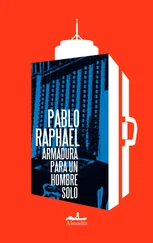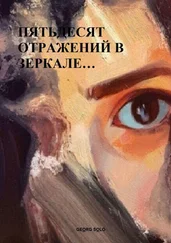One day, Ulrich decided to throw out two old canisters of sulphuric acid that were left over from his days of experimentation. He had kept them with the vague idea that they might come in useful for stripping electrical wire or something of the sort, but he had not touched them in many years. He took them down from the shelf, and, out of some inexplicable desire to see what state the contents were in after all this time, he tried to open one of them. It was sealed tightly shut. After several minutes of wrestling, holding the canister between his knees to keep it steady, the seal broke and the acid burst in his face. He ran to the kitchen to plunge his head in the sink, still full of dishwashing water, but the pain remained intense. When he could finally open his eyes he could see nothing.
His neighbours took him to the hospital, where the skin of his nose and forehead was treated for burns, but there was nothing they could do about his eyes. His corneas were destroyed.
28
THIS MORNING, ULRICH sensed a new, ripe feeling in the air, and now, in the afternoon, the storm is being prepared.
Just a succession of pinpricks at the beginning, but swelling to a single sighing sheet: a sonic layer over everything. The breeze in the window — thank God! — and the smell of dust flowing off the roof and dripping from the tree leaves. Ulrich can hear his neighbour’s hurried limp next door as she rushes between windows, throwing them open. It’s an even downpour, and he sees everything in fine grain: the cars are spraying now, the back-hiss of radials, and there is the bus park laid out, the long steel roofs resounding like tin drums. Figures caught unprepared: the street pours its people into the doorways, and somebody runs with a polythene bag held tutting overhead. Plastic takes on more of the roar as the stalls are quickly covered across the street. The windowsill is a delicate pattering bar.
Underneath, directly below, is an umbrella open wide, where the sill’s globules bomb. Silverdrops are swelling on the rib tips till they break and fall, smattering the ground plumply amid the slender rain. They burst on the paving and scatter into spray; and, caught in the flare — is he being fanciful? — is something too large to be one person, a dark doublemass absorbing the sibilance. Two hidden lovers holding each other close under the awning, a huddled shadow in sound.
By now, Ulrich has reconciled himself to the loss of his vision. In the beginning he was terribly shaken, and for months afterwards he mourned the sense he had lost. But his system gradually regenerated itself, and now he does not feel inconvenienced without his eyes. In fact, his gaze turned inward, he has become rejuvenated. Little disturbed by sensory impressions, his mind generates its own material, which absorbs him completely, and he finds his days are full.
Thinking back, he realises how much has slipped through the fingers of his memory. Everything he still retains could be told in an afternoon, and yet there is so much more. The substance of all those days, which has entirely escaped.
The days of dust drifting in the light shafts. Tea bags put out to dry. Listless newspapers with new dates on them every day. The pipes of grubby gloss that turn from the back of the radiator along the wall. The gradual death of things: plants and machines and animals; furniture and friends. Twisted hairs trapped in a hairbrush. The seasons, and their increasing irrelevance, even if there is still a sense of eternity about the clouds. Cracks in walls, and the refusal of windows to close properly after too many coats of paint. Filling in forms. New buildings whose purpose is unclear. Things that have not been seen for some time: a good pen, a souvenir key ring. Lying in bed, and ceilings. Surprises, such as window glass blown in by the wind. Small changes that appear in routes walked often: a new fence post, or a sawn-off tree. The shocking breathlessness of climbing just a few stairs, and shaving in the morning. Thoughts in the background: concerns about money, and whether he can still be considered good looking. The cleaning of things just cleaned: cups, and plates, and bathtubs, and cookers, and hands, and all the other parts of the body. Old-style banknotes discovered in jacket pockets, and the recollection of facts when the need for them has passed. The relief of television, and its futility. The persistence of shit, and its undue hold on the mind. The stuff that passes through the days: empty food cans, old batteries, rotten fruit, and notepaper.
It has all slipped away.
Ulrich has sometimes wondered whether his life has been a failure. Once he would have looked at all this and said, Yes. But now he does not know what it means for a life to succeed or fail. How can a dog fail its life, or a tree? A life is just a quantity; and he can no more see failure in it than he can see failure in a pile of earth, or a bucket of water. Failure and success are foreign terms to such blind matter.
Ulrich’s spirit has expanded in these last days, and he is no longer bereft. Though the memories are no longer his, he feels they persist nonetheless. Einstein said, considering his death, I feel such solidarity with all things, that it does not matter where the individual begins and ends . When his mind is particularly aware, Ulrich can sense the great black ocean of forgotten things, and, ignoring his beginning and end, he casts off into it. Everything he has known has drained, over time, from the actual world into this ocean, and he is blissful in the endless oblivion. Only when his surroundings insist — when the electric drill whirs downstairs, and the walls start with that powdery vibration, so unique to this place — does he alight again, reluctantly, in the narrow confines of his room.
In his childhood, Ulrich’s parents were often invited to evening parties. His father would come down first, his velvet coat resplendent and his moustaches waxed to dagger tips, and he admired himself in the fireplace mirror, saying, Look at your handsome old man! Then his mother, whose heart-shaped diamond necklace shone in the firelight, who lent over the flurries of her sapphire dress while he begged her not to go, and kissed him goodnight in a gust of perfume. Ulrich watched their departure from the window, the coachman’s whips and cries as the horses strained against the carriage’s inertia, and he sat back down, barefooted, with toys and books.
His grandmother enjoyed these moments when she had him to herself. She sat with him, and told him stories. Over the hours, the oil lamps burned out, until they were left only with the glow of the fire, which Ulrich prodded now and then.
It is a feeling that Ulrich has sought again and again through his life.
Thinking back, he is surprised at the quantity of time he spent in daydreams. His private fictions have sustained him from one day to the next, even as the world itself has become nonsense. It never occurred to him to consider that the greatest portion of his spirit might have been poured into this creation. But it is not a despairing conclusion. His daydreams were a life’s endeavour of sorts, and now, when everything else is cast off, they are still at hand.
SECOND MOVEMENT ‘Daydreams’
1
IN A SMALL INDUSTRIAL TOWN some two hundred kilometres from the Bulgarian city of Rousse lived a youth named Petar, who was looking to prove his manhood.
Petar was small and spindly, and could not attract the girls, while his father was a bull of a man whose feats of strength were talked about even in the next town.
Old Petar never stopped remarking on it.
‘Don’t know what games your old mother must have played to bring out a gimp like you.’
Читать дальше
Конец ознакомительного отрывка
Купить книгу












